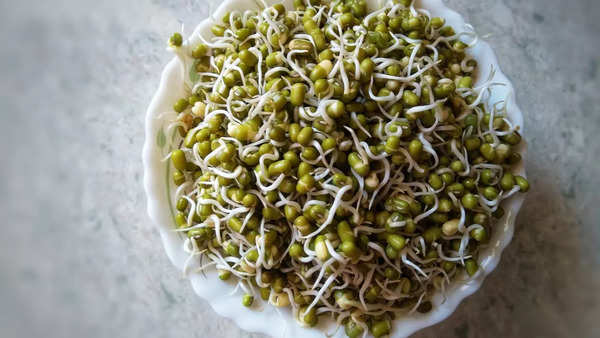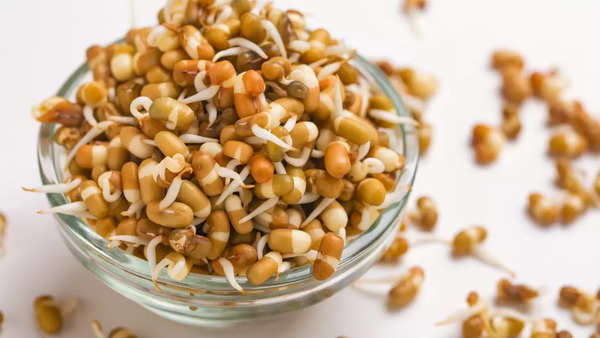Sprouts have been known to be a superfood because of their nutritional content and usefulness. Whether tossed in salads or made into sandwiches, they add wonderful crunch and nutrition. However, when it comes to sprouts, the first thing people often wonder is, ‘Are longer sprouts more nutritious?’ If you too get confused quite often regarding the nutrition of sprouts, this article is for you!
ALSO READ: Why consuming sprouts daily is a healthy habit
What are sprouts?
Sprouts are seeds from legumes, grains, and vegetables that have been germinated. Some popular ones include mung beans, lentils, alfalfa, broccoli, and chickpeas. This involves soaking seeds in water, and then rinsing, allowing them to sprout in a moist environment. The sprouting process activates enzymes in the seeds to break down starches and proteins into simpler compounds, which increases nutrient bioavailability. It also decreases antinutrients such as phytic acid and tannins, which can inhibit nutrient absorption.

Are longer sprouts more nutritious?
Nutrient peak during early sprouting
In general, the nutritional content of sprouts peaks during their early stages of germination. Scientific research has shown that the highest concentration of vitamins and antioxidants, vitamins C and E among them, is achieved during the first 3–5 days of sprouting. The further the length of sprouts, the more the nutrient content could level out or even become lower.
ALSO READ: 7 rules to follow while eating sprouts
Protein and amino acids
The protein quality of sprouts increases in the early stages of germination. However, when the sprouts grow longer, metabolic processes within the sprout consume some of the stored nutrients, which may slightly decrease their overall protein content.
Fibre & digestion
More fibre content can be attributed to the higher development of cell walls, which are present in the longer sprouts. These can be useful for digestion purposes but do not indicate superior nutrition in terms of vitamins and minerals.
Health benefits of having sprouts daily
Chlorophyll content
When they are exposed to light, the chlorophyll content in the sprouts increases. There are health benefits beyond this as well. Even though the change is for variety rather than superior nutrition, the overall effect remains there.

Short vs. Long sprouts: Which is the better?
Short sprouts are excellent, as they hold the absolute maximum contents of vitamins, minerals, and antioxidants in them. While the nutrient density may be slightly lesser for the longer sprouts, they have a lot more fibre, texture, and variety in taste.
How to get the best out of the nutritional benefits?
Time: Sprouts should be collected within 3-5 days for maximum reserve of nutrients.
Storage: Store them in a cool, dark place to allow them to retain their nutrients for longer.
Cooking: Gentle steaming will make them more digestible but slightly lower heat-sensitive vitamins.
However, longer sprouts are often misaligned with better nutrition, especially since their nutrient levels do not reach a peak even during the early sprouting stages. The added feature of long sprouts comes with fibre content and a nice taste. For full satisfaction, there is a great need to include both in your diet. Fresh properly maintained sprouts, regardless of size, constitute a great element in meals.
(Images courtesy: Canva)


